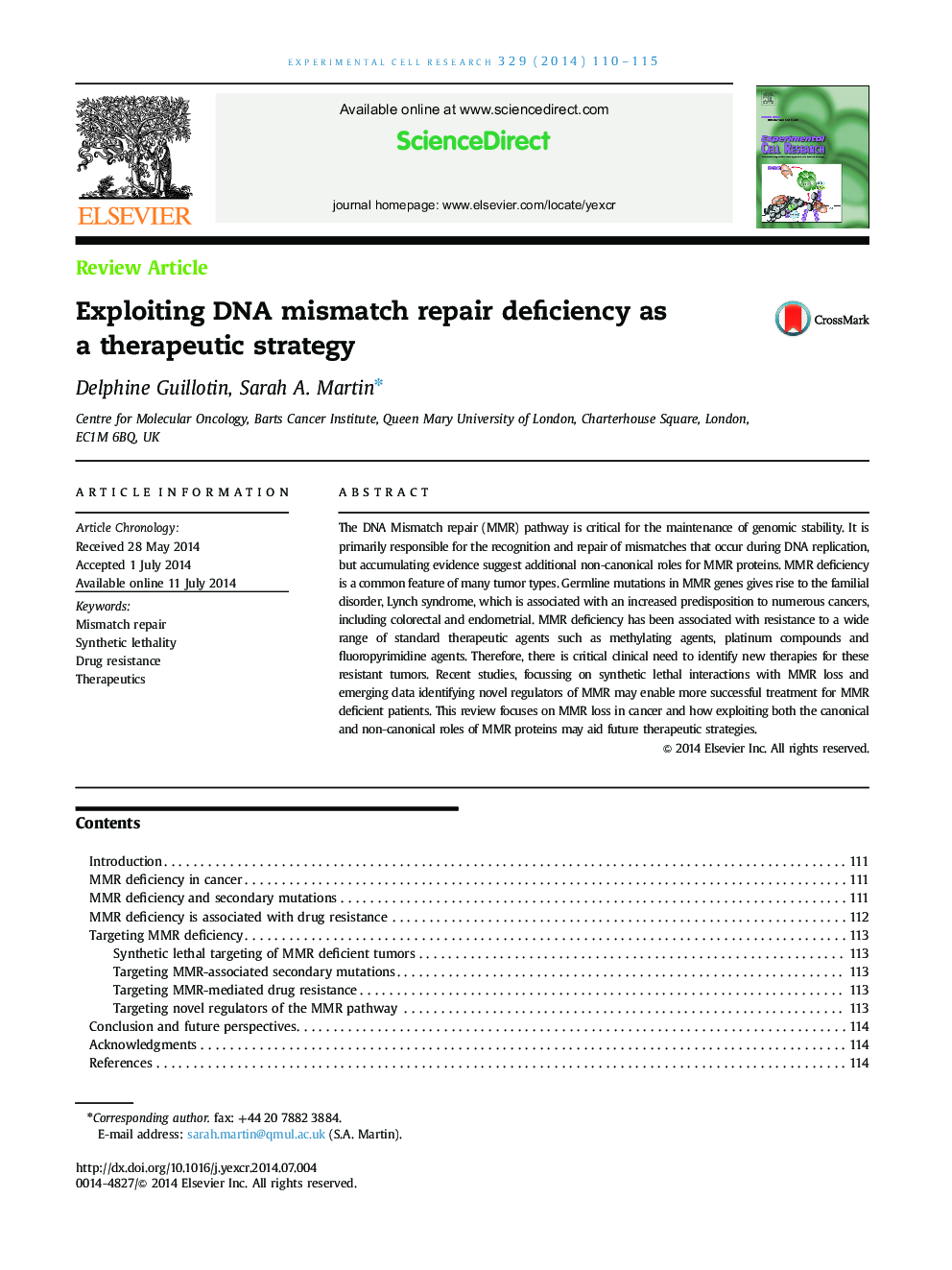| Article ID | Journal | Published Year | Pages | File Type |
|---|---|---|---|---|
| 10903996 | Experimental Cell Research | 2014 | 6 Pages |
Abstract
The DNA Mismatch repair (MMR) pathway is critical for the maintenance of genomic stability. It is primarily responsible for the recognition and repair of mismatches that occur during DNA replication, but accumulating evidence suggest additional non-canonical roles for MMR proteins. MMR deficiency is a common feature of many tumor types. Germline mutations in MMR genes gives rise to the familial disorder, Lynch syndrome, which is associated with an increased predisposition to numerous cancers, including colorectal and endometrial. MMR deficiency has been associated with resistance to a wide range of standard therapeutic agents such as methylating agents, platinum compounds and fluoropyrimidine agents. Therefore, there is critical clinical need to identify new therapies for these resistant tumors. Recent studies, focussing on synthetic lethal interactions with MMR loss and emerging data identifying novel regulators of MMR may enable more successful treatment for MMR deficient patients. This review focuses on MMR loss in cancer and how exploiting both the canonical and non-canonical roles of MMR proteins may aid future therapeutic strategies.
Related Topics
Life Sciences
Biochemistry, Genetics and Molecular Biology
Cancer Research
Authors
Delphine Guillotin, Sarah A. Martin,
